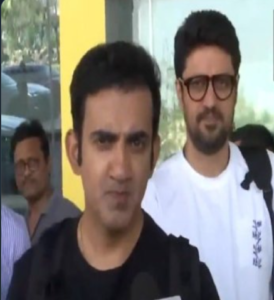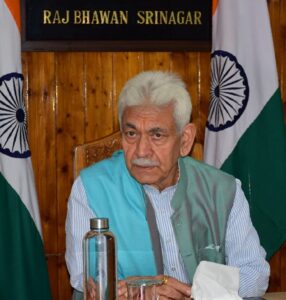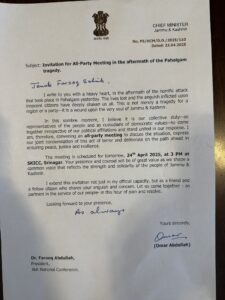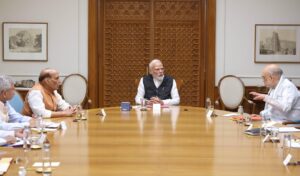Karnataka Forest Dept develops own radio collar to mitigate human-elephant conflict
Bengaluru, Feb 5 (PTI) Karnataka Environment Minister Eshwar Khandre on Wednesday launched K P Tracker– an indigenous GSM-based elephant radio collar–developed by the Forest Department in collaboration with Infiction Labs Pvt Ltd for monitoring elephants to effectively mitigate human-elephant conflicts.
These newly launched Karnataka Researched Trackers (or Karnataka Produced Trackers) are cost-effective radio collars that are readily available for immediate deployment. They have been made using locally sourced, environmentally friendly materials to ensure a reduced ecological impact, officials said.
Citing incidents of elephants roaming around Kodagu, Chikkamagaluru, and Hassan, the minister said that locals will now be informed about elephant movements through the use of indigenously made radio collars fitted to female elephants, which usually lead the herd. This initiative is expected to help curb the elephant menace.
These radio collars have now been handed over to the officials of Bandipur and Nagarhole Tiger Reserves.
According to Khandre, with 6,395 elephants, Karnataka has the highest elephant population in the country. However, since forest cover is not expanding in proportion to the growing elephant population, human-elephant conflicts are on the rise.
He stated that the government is working to provide timely information to locals by installing radio collars on elephants, thereby protecting both human and elephant lives.
“Until now, these radio collars were imported from Africa Wildlife Tracking (AWT), a South Africa-based organization, and Vectronic, a Germany-based organization. These collars were not readily available, and each one cost Rs 6.5 lakh. But now, a domestically developed radio collar costs just Rs 1.80 lakh,” he said.
Khandre further noted that this initiative will increase the availability of radio collars, reduce foreign dependence and high costs, and save foreign exchange.
Additionally, the weight of imported radio collars used to be 16-17 kg, whereas the domestically developed collars now weigh only 7 kg, making them significantly lighter, he said.
“The Forest Department has designed this radio collar to meet its specific requirements, using eco-friendly raw materials that do not pose a risk to wildlife or the environment. If a defect is found, these collars can be repaired, and their battery, bulb, or circuit can be replaced. This flexibility was not available with imported radio collars,” he said.
Highlighting the security risks associated with imported collars, Khandre said, “There was a risk of sensitive forest and wildlife data being leaked through the radio collars imported from abroad. Now that we have developed this technology domestically, there is no such risk. The data will also be securely stored on local servers.”
He also mentioned that the department is working on developing similar collars for tigers and leopards.
“In the first phase, only the elephant radio collar is ready. The development of tiger and leopard collars is also in progress, and they will be launched soon,” he said.
In a statement, the Forest Department said that K P Trackers have been designed to meet the specific needs of local wildlife, forest officials, and frontline staff.
“The Karnataka Forest Department, with active initiation from Kumar Pushkar, Additional Principal Chief Conservator of Forests (Wildlife), and continuous efforts from technology expert Gurudeepa of Infiction Labs Pvt Ltd, has developed an indigenous GSM-based elephant radio collar for monitoring elephants in conflict areas,” the statement read.
The indigenous collars feature advanced data security measures, with all collected data stored securely on local servers, it stated.
“This ensures that sensitive information remains protected while empowering local communities to maintain control over wildlife management data. The localised server deployment also reduces costs associated with data transfer and storage,” it added.






